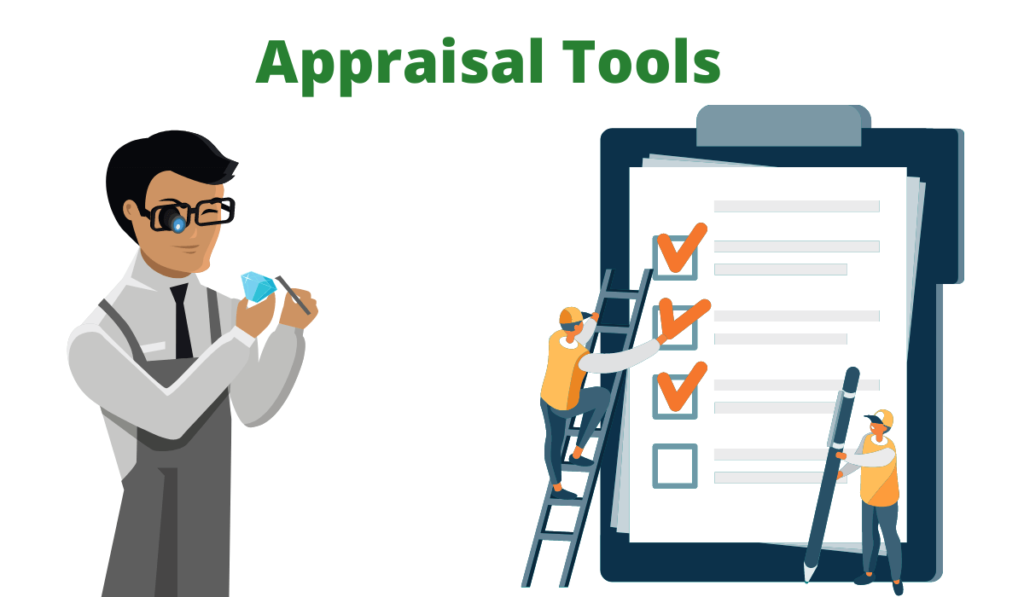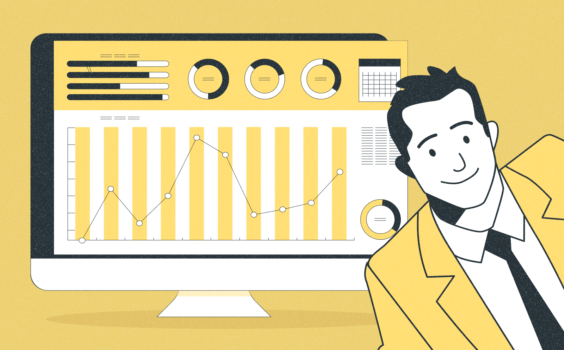Best Online Tools For Small Businesses

Are you the owner of a small business? Do you know how many business tools you are using? Just count on me. You are using Microsoft Excel, and Google Drive and I think DropBox is new to you, right? There are a lot of online tools and resources available to small businesses. Which ones are the most useful? And how do you know which ones are the right fit for your business? Keep reading, you are about to know everything about small business tools.
As you read business owners can use a variety of tools to manage their time, appraise their products and services, and increase their productivity and for other business purposes. In this blog post, we will discuss some of the most common tools and best small business tools and how they can be used by small businesses. Just to count, time management tools, appraisal tools, productivity tools, file sharing tools, small business software, google analytics and many other best free tools can help you get more done in less time. We will also discuss some tips on how to use these small business tools effectively.
What Are Business Tools?
I know you got the idea of what the business tools are. However, let me reiterate that business tools are anything that can help small business owner manage their time, appraise their products and services, or increase their productivity. This could include anything from a time management tool to an appraisal tool to a productivity app. It is important for small business owners to be aware of the different types of business tools available to them and how they can be used to help them achieve business growth.
Time Management Tools:
Time is money and we need to manage our money wisely, right? So, there are a variety of time management tools available to small business owners, including calendars, to-do lists, and timers. Using a calendar can help you keep track of appointments, deadlines, and other important dates. A to-do list can help you stay organized and ensure that you complete all of your tasks. A timer can help you stay on track and focused while working on a task.
Objectives of Time Management Tools:
The main objectives of time management tools are to help small business owners manage their time more effectively and get more done in less time. By using a calendar, to-do list, and timer, you can ensure that you are organized and productive. Let’s read a bit more about time management tools;
Calendars:
This tool is seen everywhere with a beautiful nature pictures on it. One is pasted on your office wall, did I make a right guess? Among all other free tools, a calendar is a great tool for keeping track of appointments, deadlines, and other important dates. You can use a paper calendar or an electronic calendar. But, in the modern world of technology, electronic calendars are often easier to use because they can be accessed from any device and can be shared with others.

Important Tip: If you use an electronic calendar, make sure to back it up regularly in case your device is lost or damaged.
Advantages of Using Calendars
Small businesses can avail the following benefits of using calendars as a business time management tool:
- A calendar helps to keep track of work and personal appointments.
- It reminds you of deadlines and other important dates.
- The calendar can also help to plan your day better and achieve your set targets.
To-Do Lists:
I have personally been maintaining a to-do list. Do you? It is one of my favorite small business tools. A to-do list is a great way to stay organized and ensure that you complete all of your tasks. You can create a to-do list on paper or electronically. Electronic to-do lists can be accessed from any device and can be shared with others.
Important to Note: If you create a to-do list on paper, make sure to keep it in a place where you will see it often. This will help you stay motivated to complete the tasks on the list.
Advantages of To-Do-Lists:
Small businesses can avail the following benefits of using to-do lists:
- A To-do list helps to keep track of work and personal tasks.
- It reminds you of deadlines and other important tasks.
- To-do list can help you plan your day better and achieve your set targets.
Timers:
As the name tells you its function; a timer is a helpful tool that can help you stay on track and focused while working on a task. You can use a timer to time how long it takes you to complete a task or to break up your work into smaller chunks.

Remember: If you are using a timer to complete a task, make sure that the task is achievable in the amount of time you have allotted.
Advantages of Using Timers:
Small businesses can avail the following benefits of using timers:
- Timer helps to stay on track while working on a task.
- It helps to break up your work into smaller chunks.
- The timer can help you achieve your set targets in a shorter amount of time.
Appraisal Tools:
Did you get a performance appraisal this year? How was the tool organized? For your information, there are several appraisal tools available to small businesses, including price calculators, market research tools, and customer feedback. The tools for small businesses are used for different business needs.

Price calculators can help you determine how much to charge for your products or services. Market research tools can help you determine which products or services are in demand and what the competition is doing. Customer feedback tools can help you gather information about what customers like and don’t like about your products or services.
Objectives of Appraisal Tools:
The main objectives of appraisal tools are to help small businesses determine the value of their products or services and to gather information about what customers like and don’t like about their products or services.
Price Calculators:
Price calculators can help you determine how much to charge for your products or services. There are several different price calculator tools available, including calculators that calculate the cost of goods sold, profit margins and breakeven points.
Tip: When using a price calculator, make sure to input accurate information so that you get an accurate result.
Advantages of Price Calculators:
Small businesses can avail the following benefits of using price calculators:
- Price calculators help to determine how much to charge for products or services.
- They help business owners to make sure they are charging a fair price for their products or services.
Market Research Tools:
The most important tool to see your business with customers’ eyes is market research findings. Market research tools can help you determine which products or services are in demand and what the competitors are doing. There are several different market research tools available, including surveys, focus groups, and trend analysis tools that fulfill a variety of business needs.

Tip: When using market research tools, make sure to use accurate information and target your research to your specific industry.
Objectives of Market Research Tools:
The main objectives of market research tools are to help small businesses determine which products or services are in demand and what the competition is doing.
Surveys:
Surveys are a popular market research tool and can be used to gather information from a large number of people in a short amount of time. When creating a survey, make sure to ask questions that will help you determine the needs and wants of your target market.

Tip: When surveying customers, make sure to offer an incentive for customers to participate in the survey.
Focus Groups:
This tool is used to gather information from a small group of people. When conducting a focus group, make sure that you select participants who represent your target market. The focus group should be moderated by someone familiar with the topic being discussed.
Tip: When using focus groups, make sure to video or audio record the focus group so that you can review it later.
Trend Analysis Tools:
Trend analysis tools for small businesses can help you determine which products or services are in demand and what the competition is doing. There are several different trend analysis tools available, including trend charts, trend lines, and trend forecasting tools.

Tip: When using trend analysis tools, make sure to use accurate information and target your research to your specific industry.
Advantages of Market Research Tools:
The main advantages of market research tools are that they help small businesses to:
- Market research tools help determine which products or services are in demand.
- These tools determine what the competition is doing, the competitors are identified and strategies are made accordingly.
- Market research tools help gather information about customer needs and wants.
Customer Feedback Tools:
Customer feedback is the input that a customer provides to a business about its products or services. This feedback can be in the form of comments, suggestions, complaints, or compliments.

Need for Customer Feedback:
Customer feedback is important for several reasons. First, it helps businesses to identify which products or services are in demand and what the competition is doing. Second, it helps businesses to gather information about customer needs and wants. Finally, customer feedback can help businesses improve their products or services through effective task management, team collaboration, inventory management, and many other business processes.
Customer feedback is important for businesses because it helps them to improve their products or services. It also helps businesses to identify opportunities and problems.
Customer feedback tools can help you gather information about what customers like and don’t like about your products or services. There are several different customer feedback tools available, but the most common are surveys and focus groups.
Surveys can be conducted through the mail, over the phone, or online. They can be short or long, depending on the amount of information you want to gather. The most important thing is to make sure your questions are clear and concise.
Focus groups are a little more informal than surveys, and allow participants to interact with one another. This can help get feedback about products or services, as well as develop ideas for new products or services.
Both surveys and focus groups can give you valuable information about your customers and what they want from your business.
Tip: When using customer feedback tools, make sure to ask open-ended questions so that you can get detailed feedback.
Advantages of Customer Feedback Tools:
- Gather information about what customers like and don’t like
- Can help develop new products or services?
- Can give you valuable information about your customers
- Can help you improve your products or services
When using customer feedback tools, make sure to ask open-ended questions so that you can get detailed feedback. This will help you gather the information you need to improve your products or services.
Marketing Tools:
There are several different marketing tools available to small businesses, and the ones you choose will depend on your business’s needs and budget. Some of the most common marketing tools are advertising, public relations, and direct marketing.
Advertising:
Did you know that overall digital ad spending in the United States decreased by 13.7% from $161.5 billion in 2017 to $135.1 billion in 2018, according to eMarketer Google and Facebook still dominate, with 37.2% and 19.6 percent market share, respectively? Advertising is any form of communication that promotes a product or service. It can be in the form of print ads, television commercials, or online ads.

Public Relations:
Public relations is the process of building positive relationships between a company and the public. It includes activities such as press releases, media relations, and community relations.
Direct Marketing:
Direct marketing is a form of advertising that allows businesses to target specific customers with direct mail, email, or telemarketing. Even though email marketing is on the rise, direct mail is still one of the most effective methods for acquiring new customers. The Mailchimp blog site has an interesting statistic: printed advertisements now account for 35%of all online ad spending, despite their declining popularity among digital audiences.
Tip: When choosing marketing tools, make sure they fit your budget and target audience.
When choosing marketing tools, make sure they fit your budget and target audience. Also, make sure the tools you choose are effective in reaching your target audience
Strategies for Using Business Tools:
There are several strategies that small business owners can use to effectively use business tools. Here are a few tips:
- Make sure that the tools you are using fit your needs. Don’t use a tool just because it is popular or you think you should. Use tools that will help you achieve your goals.
- Make sure to learn how to use the tools correctly. This will ensure that you get the most out of them.
- Make sure to use the tools regularly. If you only use a tool once in a while, you won’t get the full benefit from it.
- Make sure to track your results. This will help you determine if the tools are helping you achieve your goals.
- Make sure to adapt as needed. The tools that work for one business may not work for another. Be flexible and be willing to try new things.
Other Business Tools:
There are several other business tools that small businesses can use to be successful. Here are a few examples:
Financial Planning Tools
As a part of planning, financial planning tools are a necessity for small businesses. These tools can help you track your expenses, plan for future growth, and make sound financial decisions.
Track Business Expenses:
Keeping track of your business expenses is important for several reasons. It can help you stay on budget, make informed financial decisions, and claim deductions on your taxes.
There are several different ways to track your expenses, and the method you choose will depend on your business. Some of the most common methods are using a spreadsheet, using accounting software, or using a financial management tool.
Plan for Future Growth:
Planning for future growth is important for any business. It can help you identify expansion opportunities for expansion, prepare for increased demand, and budget for future growth.
There are several different tools you can use to plan for future growth. Some of the most common tools are business planning software, forecasting software, and market analysis tools.
Make Sound Financial Decisions:
Making sound financial decisions is critical for any business. By using financial planning tools, you can increase your chances of making smart financial decisions.
There are several different tools you can use to make sound financial decisions. Some of the most common tools are financial calculators, budgeting software, and debt management tools.
Accounting Software
Accounting software is a must for any business. It can help you track your expenses, create invoices, and prepare financial statements.
There are several different accounting software programs available, and the one you choose will depend on your needs. Some of the most popular programs are QuickBooks, Peachtree, and Microsoft Excel.
QuickBooks:
QuickBooks is the most popular accounting software program available. It is easy to use and can be customized to meet your needs.
Peachtree:
Peachtree is another popular accounting software program. It is easy to use and includes many features, such as invoicing, tracking expenses, and preparing financial statements.
Microsoft Excel:
Microsoft Excel is not a traditional accounting software program, but it can be used to track your expenses and prepare financial statements.
Invoicing Software
Invoicing software is another essential tool for small businesses. It can help you create invoices, track payments, and manage your accounts receivable.
There are different invoicing software programs available, and the one you choose will depend on your needs. Some of the most popular programs are Invoice Manager, QuickBooks Invoicing, and FreshBooks.
Invoice Manager:
Invoice Manager is a popular invoicing software program that is easy to use and includes features, such as creating invoices, tracking payments, and managing your accounts receivable.
QuickBooks Invoicing:
QuickBooks Invoicing is another popular invoicing software program that is easy to use and includes several features, such as creating invoices, tracking payments, and managing your accounts receivable.
FreshBooks:
FreshBooks is a popular invoicing software program that is easy to use and includes several features, such as creating invoices, tracking payments, and managing your accounts receivable.
Personal Finance Software:
Personal finance software is a popular financial management tool. It can help you track your finances, create budgets, and invest money.
There are several different personal finance software programs available, and the one you choose will depend on your needs. Some of the most popular programs are Quicken, Microsoft Money, and Mint.
Quicken:
Quicken is the most popular personal finance software program available. It is easy to use and includes several features, such as tracking your finances, creating budgets, and investing money.
Microsoft Money:
Microsoft Money is another popular personal finance software program. It is easy to use and includes several features, such as tracking your finances, creating budgets, and investing money.
Mint:
Mint is a popular personal finance software program that is easy to use and includes several features, such as tracking your finances, creating budgets, and investing money.
Business Planning Software:
Business planning software is another essential tool for small businesses. It can help you create business plans, track your progress, and make projections.
There are several different business planning software programs available, and the one you choose will depend on your needs. Some of the most popular programs are Microsoft Excel, Business Plan Pro, and LivePlan.
Microsoft Excel:
Microsoft Excel is a popular business planning software program that is easy to use and includes several features, such as creating business plans, tracking your progress, and making projections.
Business Plan Pro:
Business Plan Pro is a popular business planning software program that is easy to use and includes several features, such as creating business plans, tracking your progress, and making projections.
LivePlan:
LivePlan is a popular business planning software program that is easy to use and includes several features, such as creating business plans, tracking your progress, and making projections.
Project Management Software:
Project management software is another essential tool for small businesses. It can help you manage projects, track tasks, and communicate with team members.
There are several different project management software programs available, and the one you choose will depend on your needs. Some of the most popular programs are Microsoft Project, Primavera, and Basecamp.
Microsoft Project:
Microsoft Project is a popular project management software program that is easy to use and includes several features, such as managing projects, tracking tasks, and communicating with team members.
Primavera:
Primavera is a popular project management software program that is easy to use and includes several features, such as managing projects, tracking tasks, and communicating with team members.
Basecamp:
Basecamp is a popular project management software program that is easy to use and includes several features, such as managing projects, tracking tasks, and communicating with team members.
File Sharing Tool:
A file-sharing tool is a must-have for any small business. It can help you share files with team members, clients, and vendors.
There are several different file-sharing tools available, and the one you choose will depend on your needs. Some of the most popular tools are Dropbox, Google Drive, and iCloud.
Dropbox:
Dropbox is a popular file-sharing tool that is easy to use and includes several features, such as sharing files with team members, clients, and vendors.
Google Drive:
Google Drive is a popular file-sharing tool that is easy to use and includes several features, such as sharing files with team members, clients, and vendors.
iCloud:
iCloud is a popular file-sharing tool that is easy to use and includes several features, such as sharing files with team members, clients, and vendors.
Other Time Management Tools:
A time management tool is essential for any small business. It can help you track your time and stay on schedule.
There are several time management tools available, and the one you choose will depend on your needs. Some of the most popular tools are Time Doctor, Toggl, and RescueTime.
Time Doctor:
Time Doctor is a popular time management tool that is easy to use and includes several features, such as tracking your time and staying on schedule.
Toggl:
Toggl is a popular time management tool that is easy to use and includes several features, such as tracking your time and staying on schedule.
RescueTime:
RescueTime is a popular time management tool that is easy to use and includes several features, such as tracking your time and staying on schedule.
Customer Relationship Management:
A customer relationship management (CRM) tool is essential for any small business. It can help you manage your customers and keep track of their contact information.
There are several different CRM tools available, and the one you choose will depend on your needs. Some of the most popular tools are Salesforce, Zoho CRM, and SugarCRM.
Salesforce:
Salesforce is a popular CRM tool that is easy to use and includes several features, such as managing your customers and keeping track of their contact information.
Zoho CRM:
Zoho CRM is a popular CRM tool that is easy to use and includes several features, such as managing your customers and keeping track of their contact information.
SugarCRM:
SugarCRM is a popular CRM tool that is easy to use and includes several features, such as managing your customers and keeping track of their contact information.
perfectly optimized content goes here!


